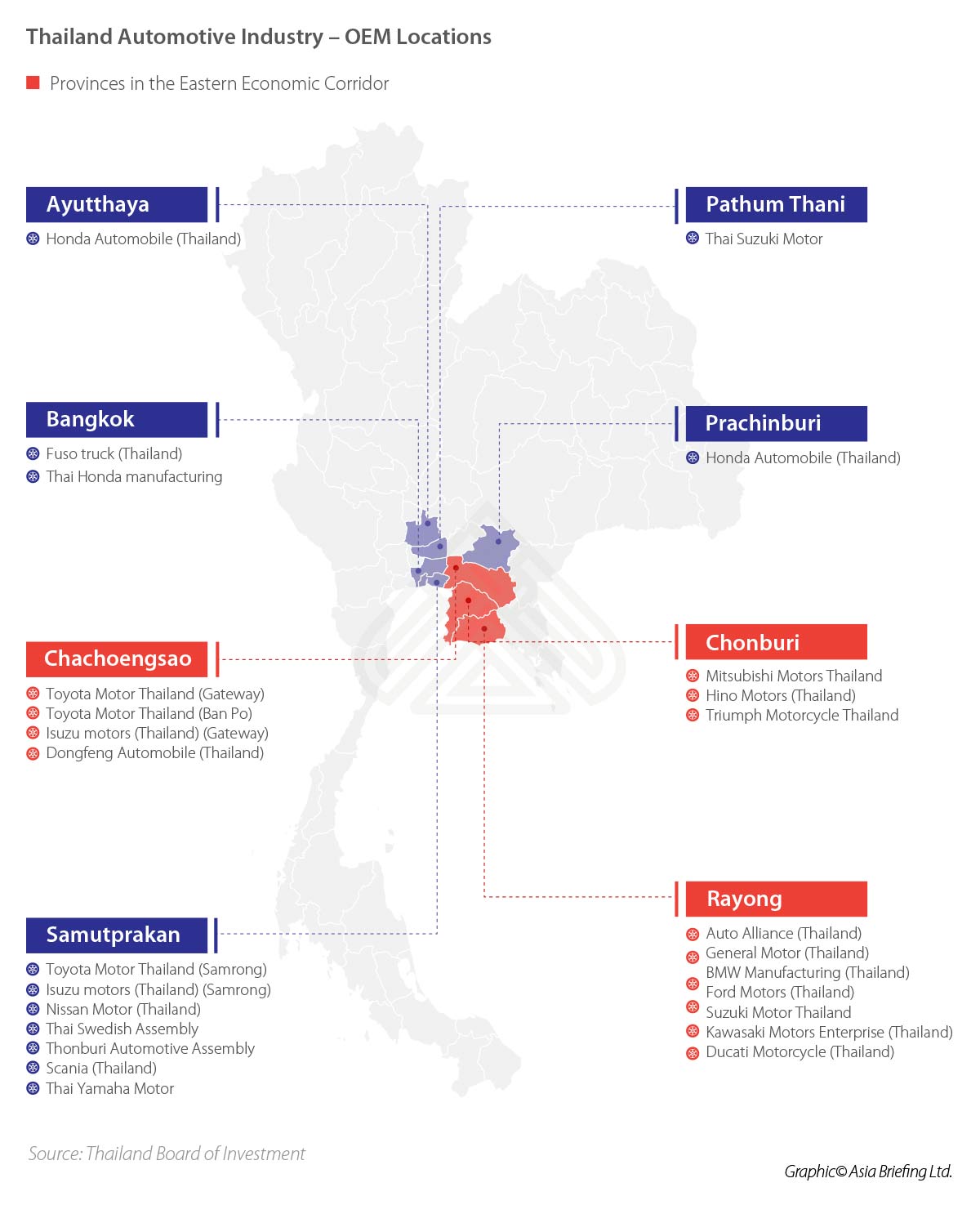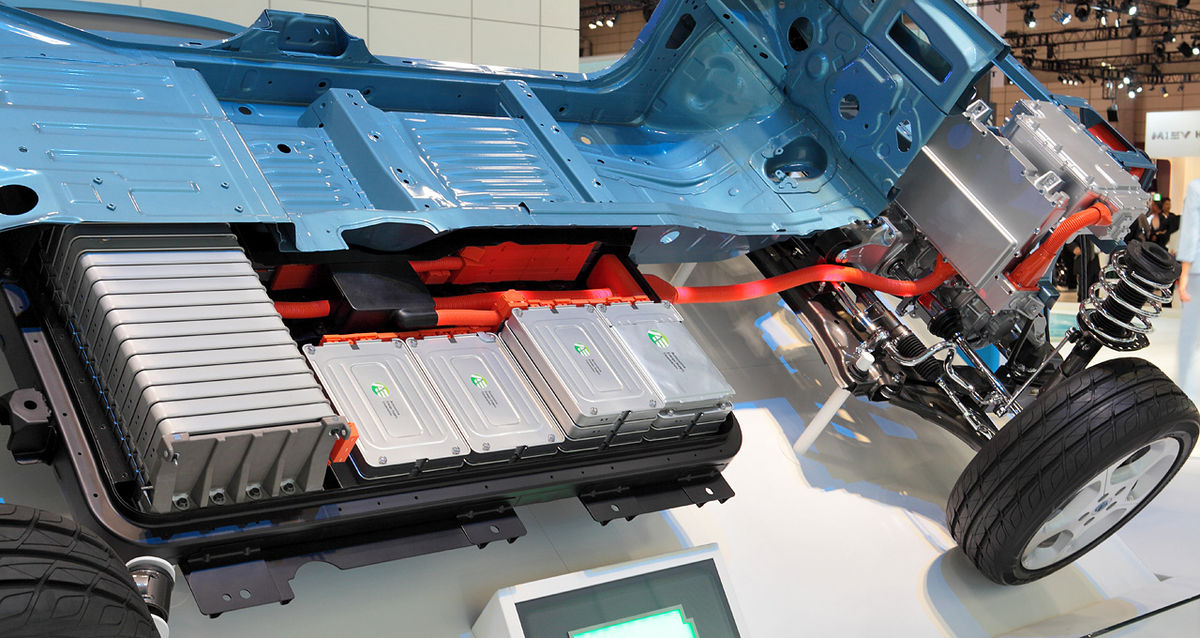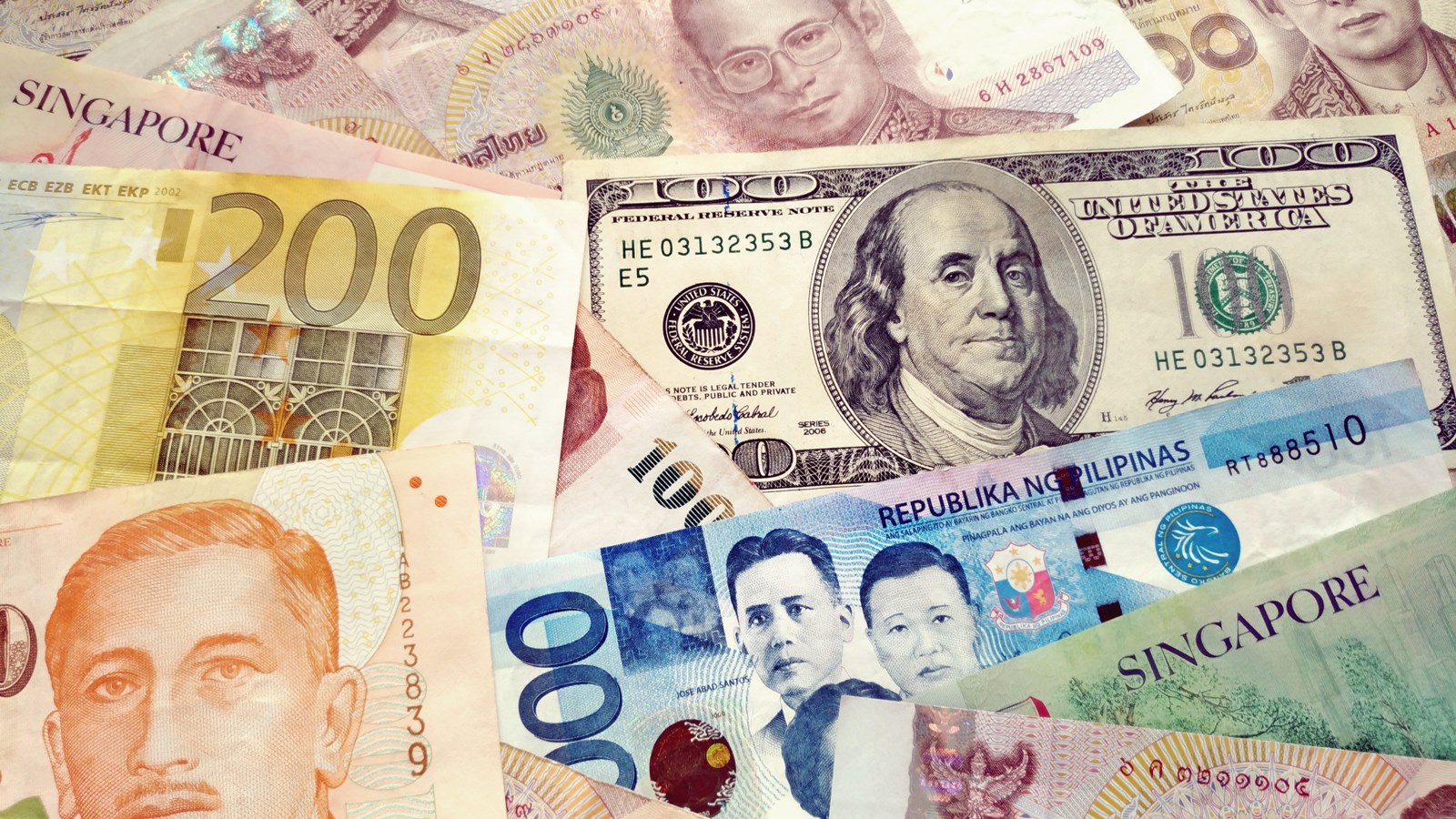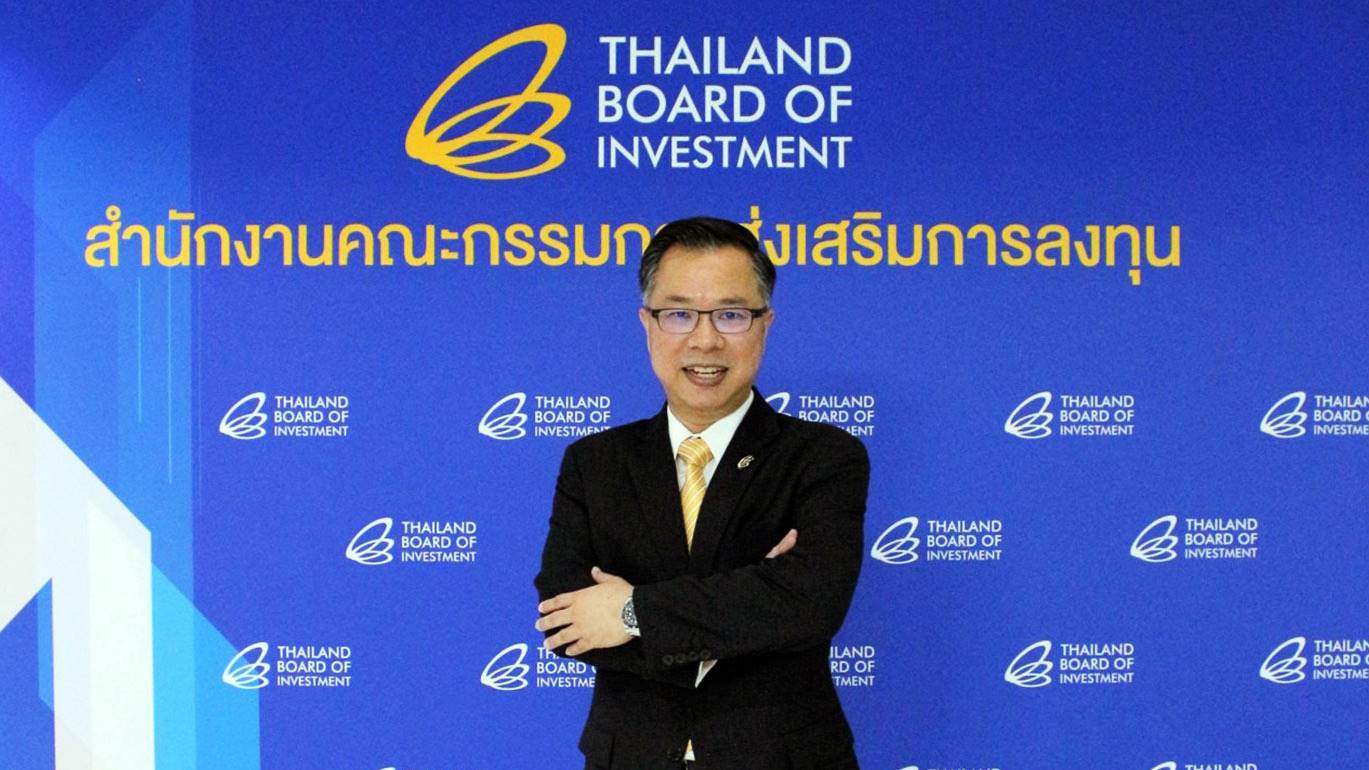Thailand offers great investment potential as a leading automotive production base in the Association of Southeast Asian Nations (ASEAN) – a fast developing region for automotive manufacturing.
Over a period of 50 years, the country has developed from an assembler of auto components into a top automotive manufacturing and export hub.
With shipments bound for more than 100 countries, Thailand is the 13th largest automotive parts exporter and the sixth largest commercial vehicle manufacturer in the world, and the largest in ASEAN. By 2020, Thailand aims to manufacture over 3500000 units of vehicles to become one of the top performers in the global automotive market.
The country has an established presence of virtually all of the world’s leading automakers, assemblers and component manufacturers. Companies such as Toyota, Isuzu, Honda, Mitsubishi, Nissan, and BMW together account for a lion’s share of the approximately two million vehicles produced in the country each year. Most of these manufacturers and parts suppliers are located in the central provinces of Bangkok, Ayutthaya, Pathum Thani, Samutprakarn, Prachinburi, Chachoengsao, Chonburi, and Rayong, offering easy access into leading markets of ASEAN, China, and India.
Opportunities for foreign investors
Board of Investment’s (BOIs) investment promotion scheme
One of the key factors that give a competitive edge to Thailand’s automotive industry is its supportive government policies. The Thai government offers substantial backing in the form of tax and non-tax incentives to encourage foreign investment in the industry. Some of the general benefits available to foreign investors include the following.
- Corporate Income Tax (CIT) exemption for up to eight years;
- Import duty exemption on machinery;
- Import duty exemption on raw materials used in manufacturing export products;
- Permit to bring skilled workers and experts to work in investment promoted activities;
- Permit to own land; and
- Permit to take out or remit money in foreign currency.
There are additional benefits available to companies investing in the supercluster automotive zones in Pathum Thani, Ayutthaya, Nakhon Ratchasima, Prachin Buri, Chachoengsao, Chonburi, and Rayong. These include reduced CIT – 50 percent of the normal rate – for five years, in addition to the tax-exempt period of up to 8 years under the general BOI promotion scheme; possibility to extend to 10-15 year CIT exemption; personal income tax for specialists both Thai and Foreign; and possibility to get a permanent residence permit.
Free Trade Agreements
Auto manufacturers and investors in Thailand can benefit immensely from the country’s free trade agreements (FTAs). At present, Thailand has six FTAs with Australia, China, India, New Zealand, and the 10 member states of ASEAN.
The FTAs provide investors an opportunity to expand their supply chain and gain competitive advantages in the importation of raw materials, components, and other production inputs by reducing and eliminating import duties. Besides, some of the FTAs harmonize customs codes and product standards, speeding trade flows.
Auto manufacturers in Thailand can use FTAs to gain greater market access in Southeast Asia, and enforce restrictions to protect their investments and intellectual property, while expanding upon business opportunities in terms of price competitiveness, market and business development, investment expansion, and government procurement.
Opportunites from the EEC
Given the world’s tightening emission standards, Thailand is keen to expand its automotive manufacturing industry to produce green vehicles. Supporting this vision is the Eastern Economic Corridor (EEC) initiative that places a great importance on bringing next-generation automotive industry to Thailand, in particular, the electronic vehicle (EV) industry.
Located in the three eastern provinces of Chonburi, Rayong, and Chachoengsao, the EEC framework is designed to support 10 target industries, including automobile, to promote emerging technology, innovation, and creativity within each sector through government policies and investment.
The aim of the EEC is to expand the value chain of the automotive industry with particular focus on surface integration design and prototyping. Further, it plans to expand and enhance the manufacturing process of electronic accessories and automotive parts. Some of the benefits available to automobile investors in the EEC include corporate income tax exemption up to 15 years; financial incentives for investment in R&D, innovation or human resources development; permit to own land used for BOI promoted projects; and facilitation of foreign workers’ visas and work permits
https://www.aseanbriefing.com/news/2018/05/10/thailands-automotive-industry-opportunities-incentives.html
About the author
ASEAN Briefing features business news, regulatory updates and extensive data on ASEAN free trade, double tax agreements and foreign direct investment laws in the region. Covering all ASEAN members (Brunei, Cambodia, Indonesia, Laos, Malaysia, Myanmar, Philippines, Singapore, Thailand and Vietnam)










